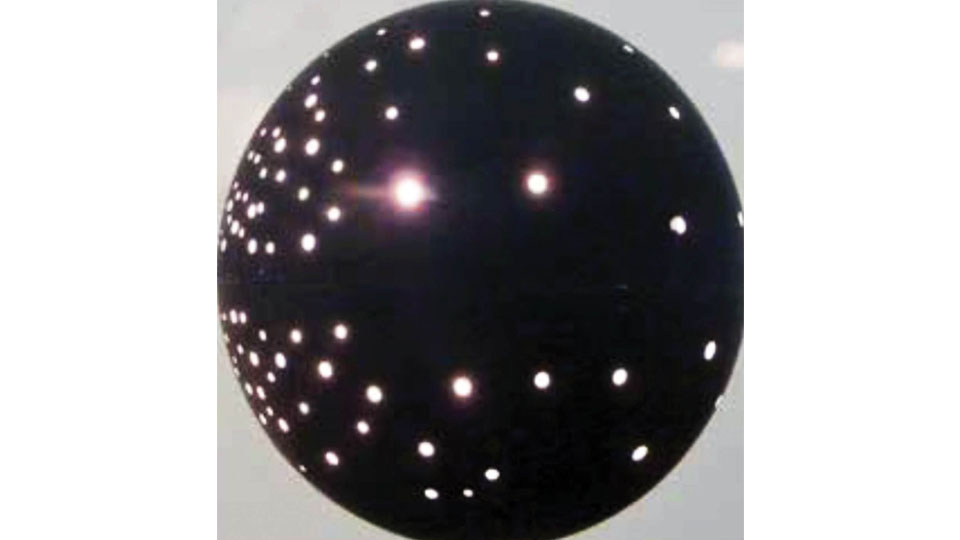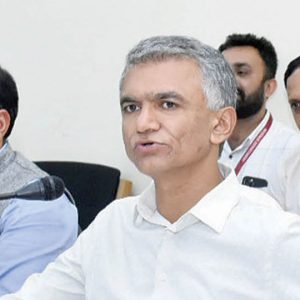[Continued from yesterday]
By S.G. Vombatkere
Samchita Karma: In the tenet, this is the accumulation of an individual’s karma-s of all previous births (karma accrued from previous lives) which defines individual characteristics, aptitudes, tendencies and interests. It is carried through the present existence into a subsequent existence.
From mass-energy flows, let us first consider the complex mass-energy flows and interactions in space-time spanning billions of years, which have resulted in physical outcomes at other points in space-time, with each such outcome representing its ancestor mass-energy flows, as explained above. It is difficult to critically distinguish between Prarabdha Karma and Samchita Karma, because establishing a connection between past and present mass-energy flows that are connected with the identity of the biological structure, cannot be readily substantiated.
Notwithstanding, a new-born child is the biological outcome of the complex energy-mass flows and interactions of its ancestral space-time spectrum of DNA transfer of genetic characteristics. These characteristics are carried forward by the infant into its lifetime, through its childhood, adolescence and adulthood. Some of them may be modified by the mass-energy flows which it initiates due to its own volition or otherwise and with which it interacts during its life-time. These modified characteristics are transmitted to its progeny by reproductive processes and form a part of future mass-energy flows.
This analogy with Samchita Karma as tenet is necessarily inexact because re-birth is a concept within the karma “model,” which itself is not subject to normal cognition.
Aagami Karma
In the tenet, this is the aggregate of choices and actions from the point of birth in the present life, which determine the future in the present lifetime, as well as in a subsequent lifetime.
At every point in time in life, the individual exercises choices and undertakes actions, which have a bearing upon and affect his/her remaining lifetime. It recognises that a person’s acts of commission or omission in the present life can influence one’s future. Indeed, multiple cultures recognise the truth of the proverb “As you sow, so shall you reap.”
From mass-energy flows, since every action is a flow of mass and energy, it is influenced by its environmental flows of mass-energy — which are themselves the result of all predecessor mass-energy flows — and also affects its environment, as it merges, meshes or interacts with other ongoing flows. All choices and actions from birth to any point in an individual’s lifetime, accumulate, forming a “status” of mass and energy at every changing instant. The manner in which the individual initiates or influences a mass-energy flow at any instant of time, determines both the immediate outcome and also the longer-term outcome.
This is best demonstrated by a real-life example. I decide (volition) to go shopping (to satisfy need for provisions). I leave home (action) at a time of my choice and walk (choice), rather than use a transport. I need to cross a road. (I have arrived at the place of crossing at that point in time, as a result of my choices and actions up to that point in time). There is motor traffic (mass-energy flows) on the road. I need to make a choice concerning the instant at which I should step out to cross the road (action) and need to decide (volition) to walk across slowly or quickly, watching the (energy-mass) flow of traffic, to avoid accident. (More choices and actions, based upon the instantaneous “status” of traffic and actions according to the environmental flows).
A speeding vehicle slows down (changes mass-energy flow) on observing me crossing — I have influenced that particular flow of mass and energy. If I fail to observe a speeding vehicle (a miscalculation or act of omission) and choose to step out at a different instant, the mass-energy of the vehicle interacts with my body mass by striking it and a different set of mass-energy flows take place (injury, hospital, Police). If am careful, my shopping is successful. If I am careless, my future is influenced by my injuries (absence from work, loss of income, etc)… and my shopping is unsuccessful.
This demonstrates that at any instant in an individual’s life, he/she may exercise discretion or choice, to adopt (or not adopt) a course of action and act (or not act) accordingly — acts of commission or omission.
Karma and modern science
The causal interpretation of the concept of karma posits (assumes) that it operates whether or not one believes that it does. It also posits the idea of volition of individuals, within the constraints of the instantaneous circumstance that they find themselves in and of which they are at least partially the cause — a circumstance that presents itself due to their karma up to that point in space-time.
Modern science is a continuous endeavour to understand the structure of the universe — including forms of natural life — and how it works. The scientific method is the practical and systematic study of the physical and natural world, by observation, experiment and documentation. It is a process of hypothesizing and theorizing, by reasoned questioning and proving. To aver that karma is a Law, like the Law of Gravity (a force of which one feels the effects, and is always subject to, whether one is conscious of it or not, whether one believes in it or not), is to try to interpret a philosophical concept with the experimental tools of modern science.
Hindus believe that karma is a force generated by an individual’s actions, having consequences. Karma may be also viewed as an experiential model, which explains the imponderables of birth, the joys and travails of life and the circumstances of death, which we observe and experience, in relation to actions, events and happenings around us, whether or not we are personally involved in them. Karma cannot be verified or replicated by a laboratory experiment.
It is axiomatic and reasonable to believe that every action in space-time has an effect, result or outcome, whether immediate or delayed, small or big, perceived or not, in space-time. This cause-effect axiom applies to the mass-energy flows in the foregoing discussion and assumes a primeval or ‘original’ source of energy and mass, in the space-time universe. The cause-effect axiom is embedded in the concept of karma, including the concept of re-birth.
The existence of an “original” source of mass and energy is also a necessary assumption of modern science in the context of the mass-energy structure of the observed space-time universe.
The origin of the universe has been raised to the status of theory — incorporating all laws, facts, inferences and tested hypotheses — as a “Big-bang” of mass-energy at the beginning of space-time. Modern science explains much of the behaviour of matter and energy, but does not address the questions of the origin of the mass-energy of the Big-bang and what is the purpose and meaning, if any, of the observed universe.
Karma cannot be proved to be a “scientific” concept within our present scientific understanding of space-time. However, the model of karma including its re-birth hypothesis, arguably remains as valid as the Astrophysicist’s model of the Big-bang.
References: 1. S.G. Vombatkere; “The Entropic ‘Dance’ of Mass and Energy”; The Indian Social Science Academy, Social Science Abstracts, 2022, Vol.45, pp.150-158.
2. S.G. Vombatkere; “The Moral compass of Hindu Universalism: A Layperson’s view of Spirituality & Religion in a contemporary context”; <Insight 19-1 Online.indb>; Interreligious Insight; Volume 19, No.1; June 2021, pp.68-71.
3. Ananda Coomaraswamy; “The Dance of Shiva – Fourteen Essays By Ananda Coomaraswamy”, Rupa Publications India Pvt. Ltd., New Delhi-110002; 2013; pp.61-62.
4. Fritjof Capra; “The Tao of Physics.”
<https://www.fritjofcapra.net/shivas-cosmic-dance-at-cern/#:~:text=It%20is%20indeed%20as%20Capra,patterns%20of%20the%20cosmic%20dance>.
5. Ibid.
Note 1. ‘Causality’ is the influence by which one event, process, state or object contributes to the production of another event, process, state or object, where the cause is partly responsible for the effect, and the effect is partly dependent on the cause.
About the Author: S.G. Vombatkere was commissioned into the Indian Army Corps of Engineers in 1962 and retired from military service in 1996 in the rank of Major General. President of India awarded him Visishta Seva Medal (VSM) in 1993 for distinguished military service in the field.
His present area of interest is strategic and development-related issues. He holds a Ph.D in Civil Engineering (Structural Dynamics) from the Indian Institute of Technology, Madras. He is Fellow of The Institution of Engineers (India), Fellow of The Indian Social Science Academy, and was Adjunct Associate Professor of the University of Iowa, USA, in International Studies.
[This article was first published in Interreligious Insights; Volume 20 No.1, June 2022; pp. 66-75]
e-mail: [email protected]
[Concluded]








Recent Comments